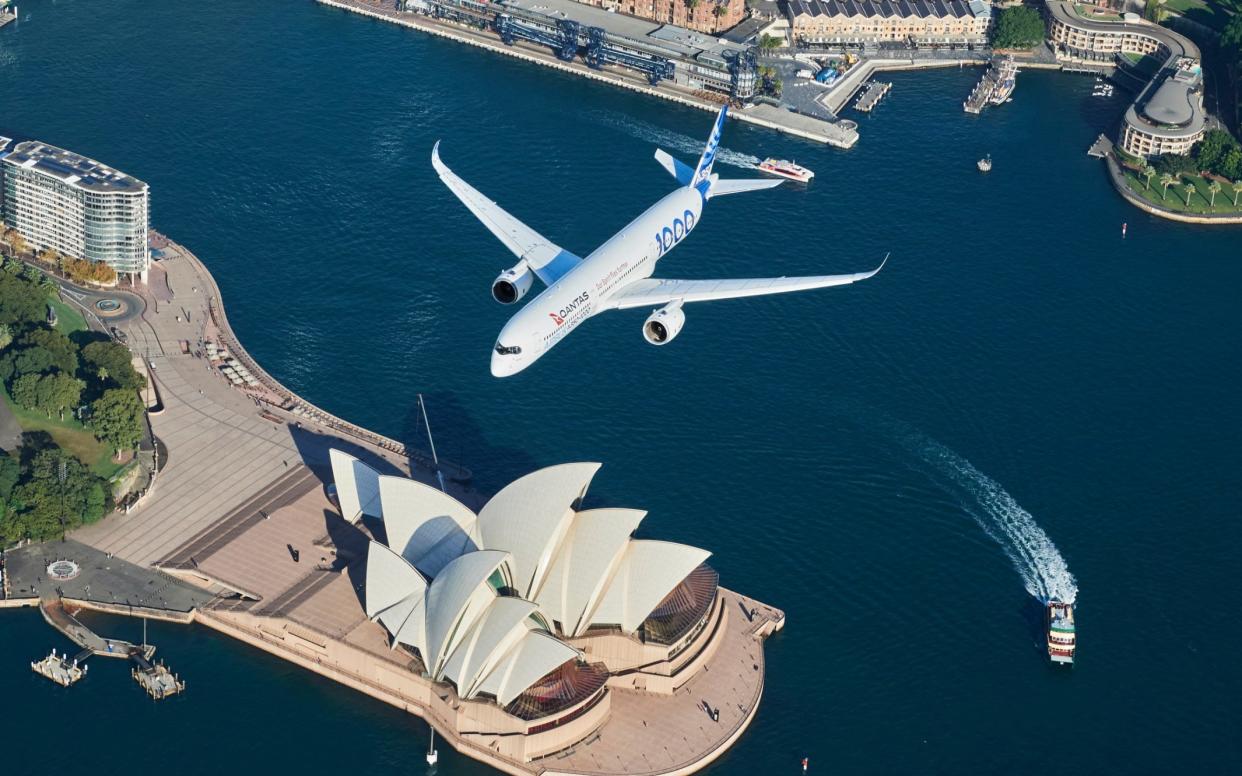Airline pilots warned about radio interference by Chinese military in South China Sea

Australian airline Qantas has warned its pilots about radio interference from the Chinese military in the South China Sea and GPS jamming from warships operating near Australia.
The caution to air crews was issued last week and comes at a time of heightened tensions in the Indo-Pacific over China’s military ambitions and Beijing’s territorial claims in the South China Sea, where it has been accused of militarising reefs and islands.
“Qantas Group aircraft have experienced interference on VHF from stations purporting to represent the Chinese Military in the western Pacific and South China Sea,” the airline said in a note to pilots, referring to “very high frequency” radio waves.
“Group aircraft have experienced GPS jamming suspected to originate from warships operating off the north west shelf of Australia,” it added.
Rare warning to pilots
Qantas urged its flight crews to report any incidents to air traffic control.
The rare warning to pilots followed a similar warning in early March from the International Federation of Air Line Pilots’ Associations which said it had been notified of airlines being called over VHF by “military warships in the Pacific region, notably South China Sea, Philippine Sea, East of Indian Ocean”.
It said that in some cases, “the flights were provided vectors to avoid the airspace over the warship. We have reason to believe there may be interferences to GNSS (Global Navigation Satellite System) and RADALT [radar altimeter] as well.”
It recommended that pilots do not respond to warships and file safety reports on any non-ATC (air traffic control) or GNSS interference. The trade body said it was liaising with the International Air Traffic Assocation (IATA), although IATA said it had “no information” on the issue.
Pilots have downplayed safety concerns as crews can use inertial navigation systems, which are immune to jamming, if GPS fails.
‘No safety incidents reported’
Qantas also stated that “there have been no safety incidents reported that relate to this activity”.
However, Neil Hansford, chairman of Australian consultancy Strategic Aviation Solutions, suggested that while the VHF interference was “more of a nuisance,” the jamming of GPS could be potentially more serious, and that both activities may be politically motivated.
The unusual phenomenon was reported in the same month that Beijing ramped up pressure on the Philippines over its increased defence cooperation with the US, and hit out at the US, Australia and the UK over the Aukus agreement to develop nuclear-powered submarines to patrol the Indo-Pacific.
On GPS jamming, Mr Hansford said that while “properly trained crews like Qantas, British Airways or anyone similar” had been taught to navigate without using GPS, “the problem is that the other aircraft occupying the same skies don’t necessarily have the same level of training”.
He added: “Qantas is the safest airline in the world and it was important enough for all their pilots to have it drawn to their attention.”

